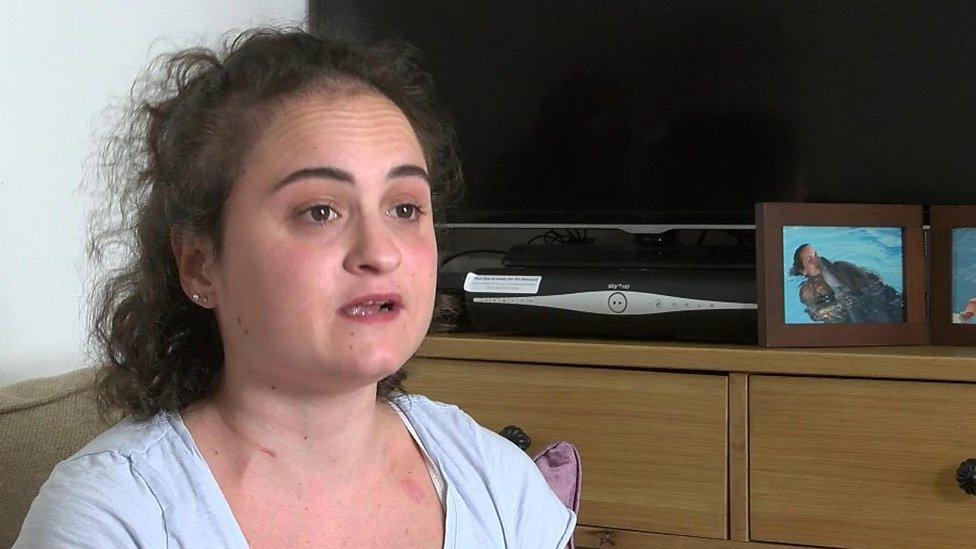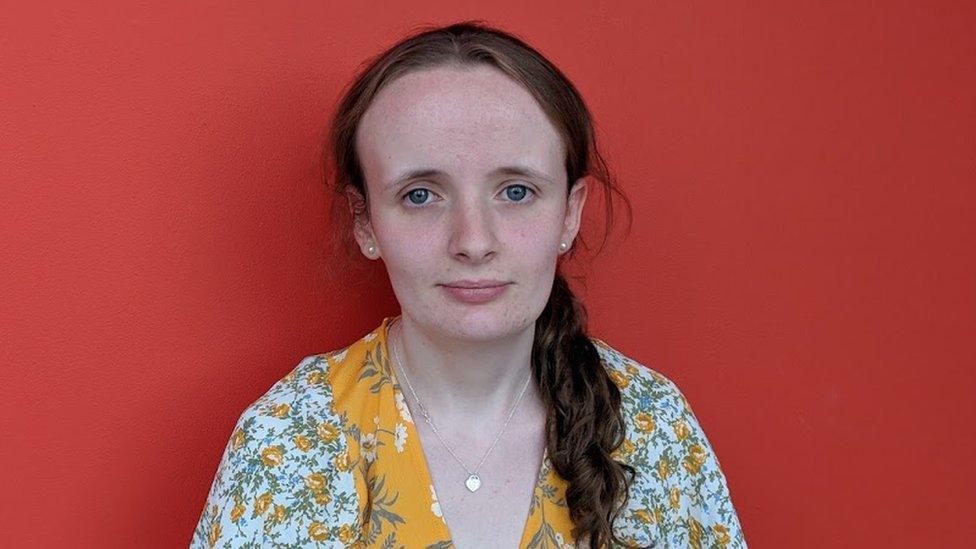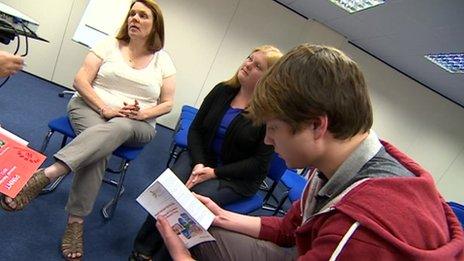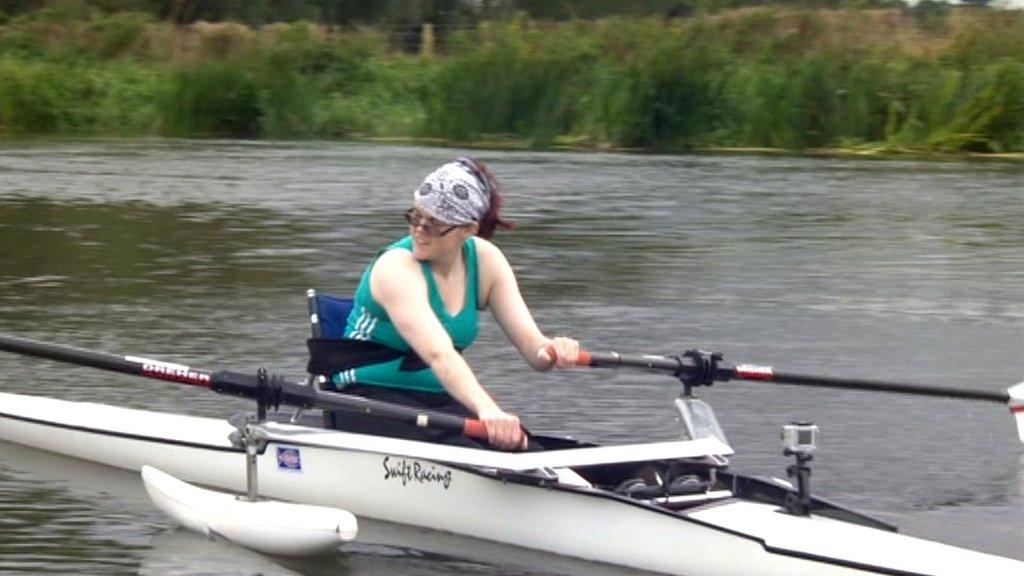Calea: Patients left 'starving' after firm changes feed system
- Published
Delays to nutrition packs for gastric patients
A woman who cannot eat or drink fears she will soon run out of vital medication because of supply problems.
Lauren Lethbridge has gastro-intestinal failure and relies on bags of nutrients supplied intravenously to stay alive.
But the company that produces the feed is facing a backlog after being ordered to change its production system for safety reasons.
Calea says it is working "as quickly and safely as possible" to clear the backlog using a new production system.
Lauren, 23, of Cranbrook, Kent, has had the condition for seven years and relies on a regular supply of the personalised feed bags for her everyday nutrition.
But she received only part of her fortnightly delivery from the Cheshire-based company at the beginning of the month, and last week's never arrived at all.
Her mother, Catherine, said: "Patients are effectively being starved. We have discovered... that many Calea patients throughout England and Wales... are consequently becoming incredibly unwell as a result."
Lauren said: "It's made me realise just how dependent I am."

Analysis
by Mark Norman, BBC South East health correspondent
Families as far afield as Liverpool and Plymouth have been affected by the supply problems at the firm Calea.
After an inspection by Medicines and Healthcare products Regulatory Agency (MHRA) the firm was told there were "serious concerns" about its procedures and a "significant risk to product safety".
The inspectors stress that there was no evidence of contamination in products supplied to patients.

Calea, based in Runcorn, is one of only a handful of firms supplying total parenteral nutrition (TPN).
It said in a statement: "We have been directed to change the process by which we add trace elements and vitamins to our parenteral nutrition bags, in order to align with latest standard industry practice.
"As a result the time taken to produce bags has increased and although we are working as quickly and safely as possible to meet demand, we are sorry that our deliveries have been delayed."
The MHRA says the required changes are a "precautionary, but necessary, measure" and no defective products have been found.

Follow BBC South East on Facebook, external, on Twitter, external, and on Instagram, external. Send your story ideas to southeasttoday@bbc.co.uk.
- Published22 July 2019

- Published27 August 2018

- Published3 July 2013

- Published27 September 2012

- Published24 June 2010